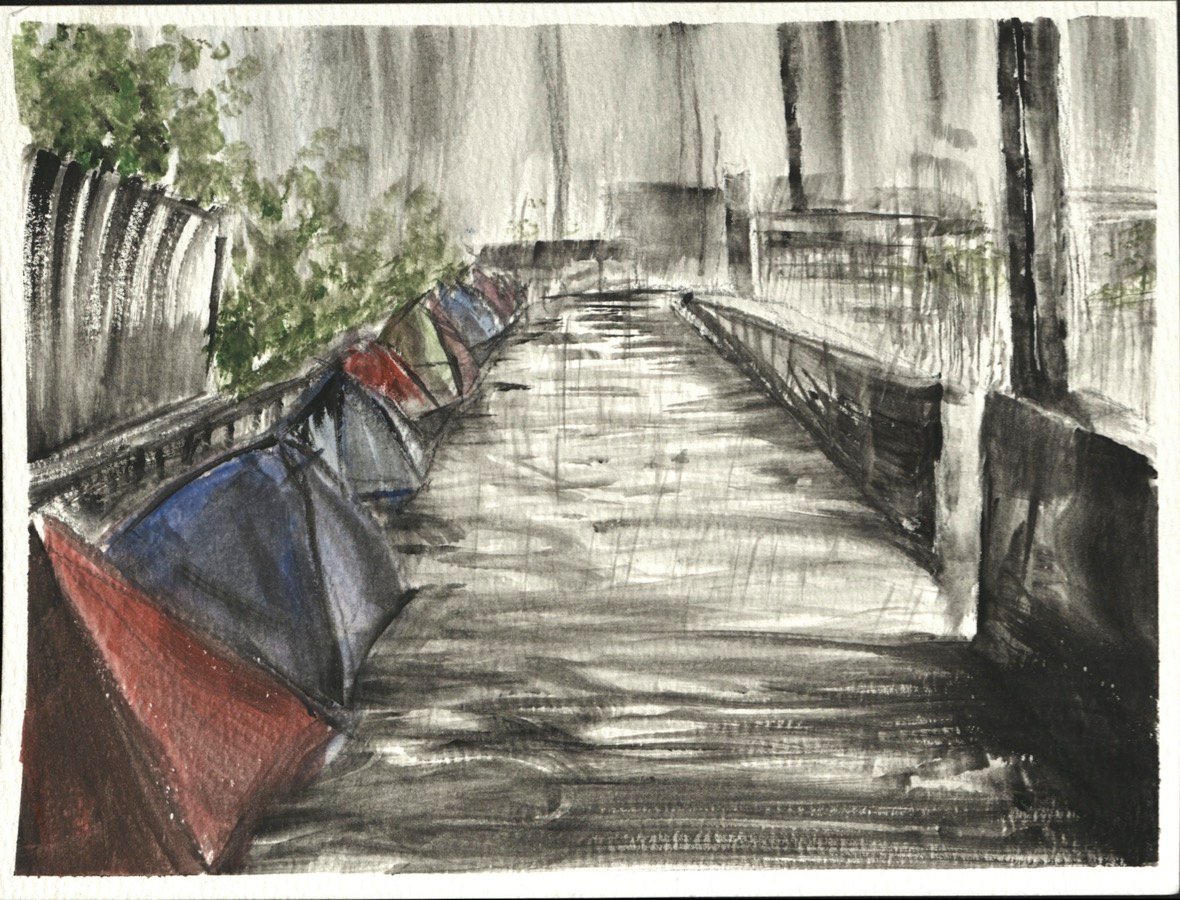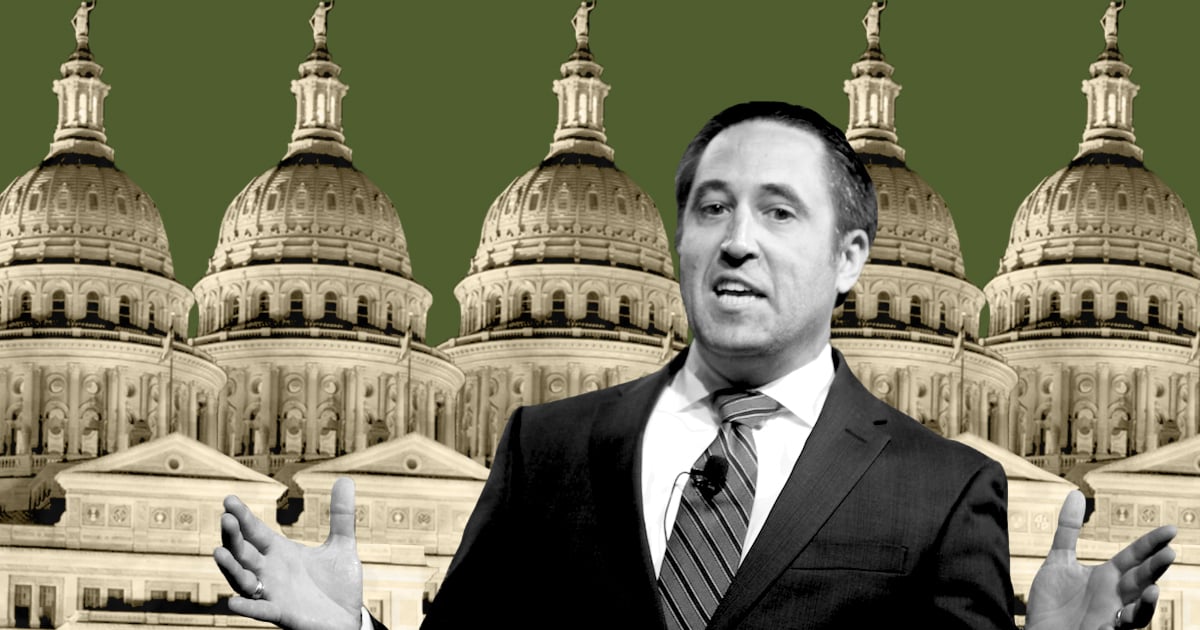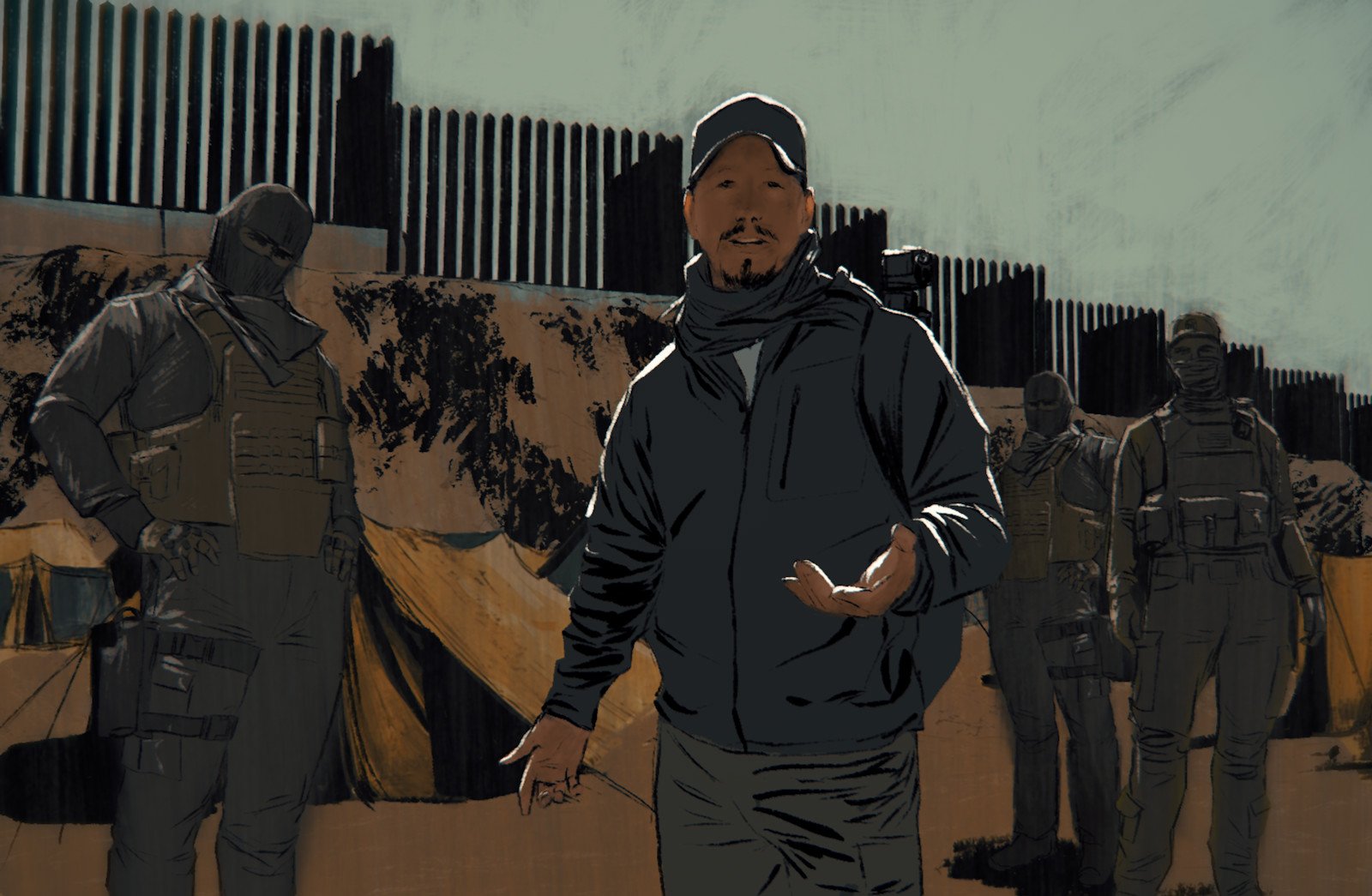Dateline D.C.
Granny D Arrives
Washington, D.C.
This was not the motorcade that denizens of Pennsylvania Avenue are used to seeing. Rather than a sleek column of black limousines and SUVs with police cruisers at the head and the foot, a beat-up van and a few cars deliberately inched along the right-hand lane of the boulevard toward the center of the city, the Capitol Rotunda. And instead of watchful Secret Service officers strategically positioned to monitor gawking tourists, a motley string of marchers carrying signs chanted, cheered, and meandered toward the Capitol.
All days are strange ones in D.C., but even by that standard this one was an anomaly. Though it was still February (by leap-year, barely), it was a balmy day with a cool, soft breeze, and just enough clouds to take the edge off the heat. The crowd continued down the street, drifting along behind the ninety-year-old great-grandmother of twelve. She had left her New Hampshire home more than a year earlier on a cross-country walk (including brief intervals of skiing) from Pasadena to Washington, in an effort to draw attention to campaign finance reform — and even the cops were smiling. At least they had an excuse to be outside on the first spring-like day of the year.
The center of attention, Doris “Granny D” Haddock, shuffled along near the front of the crowd, with a slightly dazed smile, as more than a thousand people marched these final steps with her. The march had begun that morning at Arlington National Cemetery, crossed the Potomac and continued down K Street (home to the high-dollar law firms and lobbyists who never have to walk to the Capitol), and then onto Pennsylvania Avenue.
The media advisories had been a little vague about the exact location of Granny D’s Capitol arrival; Common Cause said the rally would be in a parking lot at the northeast corner of the Capitol grounds. But once there, neither I nor any of the dozen or so television cameras dispatched to record Granny D’s arrival had any trouble picking out where to go. A giant sign, stretched across the top of the main Senate stairs and reading “FOR $ALE,” was a resplendent beacon. One side of the stairs remained clear for tourists, and the Capitol Police sent approximately one officer to protect each and every step of the tall stairway to the door. But three-quarters of the stairs were filled by banner-holding, noise-making, sign-waving supporters of Granny D who formed the welcoming committee for the procession arriving down Pennsylvania Avenue.
The procession quadrupled the size of the crowd and introduced some new elements: a man wearing a giant puppet contraption of an empty suit; a handful of drums, whistles, and assorted noisemakers. The Capitol Police quickly descended from the steps to usher the marchers out of the way. It seems that organizers had procured a permit for the steps but not for the paved area at the bottom of those steps. As a result, the entire rally had a subtext: the struggle between the police gently pushing people toward the grass beside the steps (leaving the speakers staring out toward the television cameras and, behind them, an empty paved lot), and the ebb of the crowd back to the front of the steps, behind the cameras and microphones, into the speakers’ fields of vision.
There was nothing particularly remarkable about the speeches given by eight members of Congress (although partly in homage, partly in photo-op avarice, each insisted upon kissing the guest of honor), or those of the representatives from a broad range of sponsoring organizations. But the headlines belonged to Granny D. By the time it was Granny’s turn to talk, the crowd had been ebbing and flowing with the police for well more than an hour, and even the spring-like conditions were beginning to produce a little sweat, a little impatience, and a growing murmur.
On the grass to the side of the stairs, people were lounging and smoking and picnicking and even sleeping. It was evident from the organizers’ faces that the rally had gone on longer than anticipated, and it was evident from the participants’ faces that it had gone on longer than advisable. Off to the side, Jim Hightower was trying — mostly unsuccessfully — to broadcast his radio show live from the rally. He had a cell phone attached to each ear, and he spent most of his time looking down, then removing a phone from his ear to look at it, then listening again. Under the brim of his trademark cowboy hat he looked nearly as glum as the members of Congress, trapped in the crowd on the stairs, unable to slip unnoticed (as is the custom once they finish speaking) back to their offices, to the air conditioning — to politics as usual.
But then Granny D stepped up to the microphone. Wisconsin Democratic Senator Russ Feingold introduced Granny, spending most of his time waxing semi-eloquent about his good friend John McCain (at that moment off gallivanting in the “Straight Talk Express” — and attempting to slay the dragon of big money by raising plenty of his own). But no one was listening, at least until Granny D’s voice captivated the crowd. “Before the days of the Civil Rights Movement,” she began, in an arresting voice, light and airy, and a trifle singsong in an aristocratic Katherine Hepburn kind of way. She spoke slowly, almost metronomically, like a high school literature teacher patiently demonstrating poetic rhythms: “Our ballots [beat] are our brooms [beat] and we come [beat] a-sweepin’.”
Granny D’s words were as surprising as her voice. Her speech, also published on her website (www.grannyd.com) under the title “Senators, How Did You Dare Think We Would Not Care?,” was full of fabulous one-liners; it was also thoroughly stern, spoken with the authority of a disappointed elder, and with the cheering support of all those in attendance — even, at times, the mildly-stunned Senators still behind and beside her. She chastised the Senate for using Byzantine procedures to keep campaign finance reform legislation from facing a vote (though it has majority support), and she scolded members for their inattention to the will of their constituents.
What might we call the selling of our government from under us? What might we call a change of government — from a government of, by and for the people, to a government by and for the wealthy elite? I will not call such a change of government a treason, but those more courageous shadows standing among us, whose blood runs through our flag and our history, and whose accomplishments are more solid beneath us than these stone steps, why they might use such a word in angry whispers…. Shame on you, Senators and Congressmen, who have turned this headquarters of a great and self-governing people into a bawdy house.
In her lilting, almost meek voice, so at odds with her words, Granny D continued her tirade: “[Senators,] if I have offended you speaking this way on your front steps, that is as it should be; you have offended America and you have dishonored the best things it stands for. Take your wounded pride, get off your backs and onto your feet, and go across the street to clean your rooms. You have somewhere on your desks, under the love letters from your greedy friends and co-conspirators against representative democracy, a modest bill against soft money. Pass it. Then show that you are clever lads by devising new ways for a great people to talk to one another again without the necessity of great wealth. If you cannot do that, then get out of the way — go home to some other corruption, less harmful to a great nation.”
Hearing her, and the chants of the crowd (e.g., “Get Arrested for Granny!”) and watching the energy she elicited, it was possible to believe that the great grassroots movements of the past were not all in the past, that another such movement — which Granny D predicted in her remarks — could come to pass. Indeed, when sixteen people, demonstrating their conviction to this cause, went directly from the rally into the Capitol Rotunda to commit non-violent acts of civil disobedience, that sense of history in the making was underscored.
But there was also a troubling sense of absurdity in the air, a sense of Granny D’s tone — as refreshing and inspiring as it was — being somehow inappropriate, or at least hardly up to the task it would so boldly take in hand. It didn’t come to me until later: Granny D had lectured the Senators as though they were naughty toddlers, and she a stern nanny. That’s fine for most of the Chamber, certainly that handful of Congressmembers here to kiss her cheek. But what about Strom Thurmond, one-time Presidential candidate (against Harry Truman and Thomas Dewey!), Senator since 1954, fourth in line for the presidency, a virulent opponent of campaign finance reform — and perhaps most significantly, Granny D’s elder. No matter what Granny D says, Strom Thurmond won’t be ordered to clean his room. And like any group of kids, many of the Senators simply seek a ringleader, an excuse not to do as they’re told — at least as they’re told by Granny D and her ordinary fellow citizens.
These Senators have their ringleaders (call them the Capitol Gangbangers). Besides Thurmond, to cite only the most distinguished few: there’s Mitch McConnell (who refuses to admit the Supreme Court doesn’t believe money and free speech are equivalent); Robert Bennett (who demands smoking-gun proof of direct, quid pro quo corruption); Phil Gramm (whose drawl sucks in the bucks and protects the bankers), and Trent Lott (who runs the Senate in time-honored, campaign-funded defense of defense manufacturers). Not one of these hirelings has the least interest in “cleaning his room” — and they’ve bullied enough of their peers to keep the place littered with cash, at least for the near future.
Still, there’s nothing quite like the first nice day of the new millennium — and someone brave and dedicated enough to insist, again and again, that even Senators can be grounded — and that no one ever gets so old or so powerful as to escape the chance of a sound electoral spanking. Three more cheers for Granny D.
Jeff Mandell was not the guy wearing the giant puppet contraption of an empty suit at Granny D’s rally.


